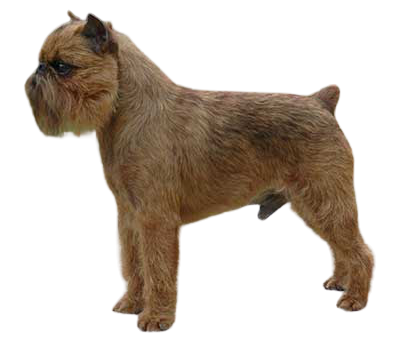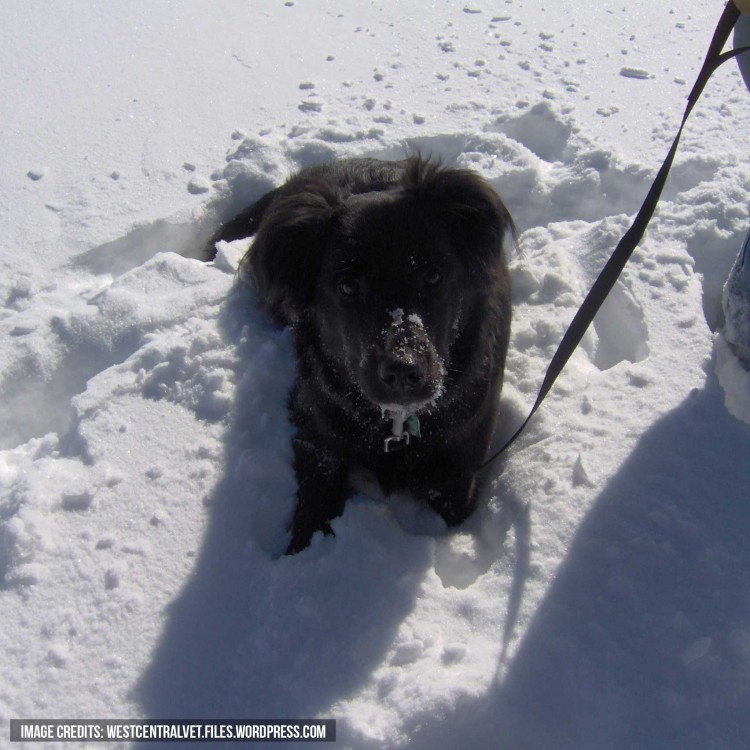
Brussels Griffon
USD $600-$1200 Price Avg.
Companion Dogs
Group
Purebred
Breed Type
Small
Size
13-15 years
Lifespan
Breed Information
| Group | Companion Dogs |
|---|---|
| Popularity/Rank | 94 |
| Origin | Belgium |
| Other Names | Belgian Griffon, Brussels Griffon, Griffon, Griffon Belge, Griffon Bruxellois, Petit Brabancon |
| Breed Type | Purebred |
| Price (Avg.) |
USD $600-$1200
How much does a Brussels Griffon cost? According to a rough estimate, you will spend between $600 to $1200 on your Brussels Griffon if you purchase it from a reputable breeder. If you select a dog with exceptional bloodlines, the price may be higher. The price might even be higher if the dog has already been trained. You'll usually pay less if you get a Brussels Griffon from a shelter. |
| Size | Small |
| Weight | 6-12 pounds (2.5-5.5 kg) |
| Height | 7-8 inches (18-20 cm) |
| Lifespan | 13-15 years |
| Recognized by |
AKC, FCI
The American Kennel Club in 1910 as a Toy breed. And FCI in the Companion and Toy Dogs group, in the Small Belgian Dogs section. |
| Purpose | small vermin hunting, companion |
| Date of Origin | 1800s |
| Ancestry | Affenpinscher, English toy spaniel, Griffons d’ecurie, Pug |
Appearance & Maintenance
| Coat | Rough, Smooth |
|---|---|
| Coat Colors | Belge, Black, Black & Tan, Red |
| Grooming Level | |
| Shedding Level | |
| Eye Color Possibilities | Brown |
| Nose Color Possibilities | Black |
| Coat Color Possibilities | Black, Brown, Cream, Fawn, Red |
| Coat Length | Small |
| Coat Density | Normal |
| Coat Texture | Wiry |
| Recommended Brushes | Comb, Deshedder, Nail Clipper, Pin Brush |
| Brushing Frequency | Weekly |
Breed Characteristics
| Temperament | Alert, Aware, Companionable, Inquisitive, Selfish, Sensitive, Vigilant, Watchful |
|---|---|
| Intelligent | |
| Trainability | |
| Playfulness | |
| Sensitivity Level | |
| Affection Level | |
| Social Interaction Required | |
| Barking | |
| Watchdog Ability | |
| Territorial | |
| Biting Force | Low |
| Mouthiness | |
| Impulse to Wander or Roam | |
| Prey Drive | |
| Adaptability | |
| Tolerates Being Left Alone | |
| Fighting Dog | Not really |
Good & Friendly with
| Apartment Life Friendly | |
|---|---|
| Stranger Friendly | |
| Kid-Friendly | |
| Cat Friendly | |
| Dog Friendly | |
| Office Friendly | No |
| Senior Citizens Friendly | |
| Pet Friendly | |
| Friendly with First Time Owners | No |
| Service Dog | Not really |
| Therapy Dog | Not really |
| Detection, Sniffer or Security Dog | Not really |
| Search and Rescue Dog (SAR) | Not really |
| Boat Dog | Not really |
| Cart Pulling or Drafting Dog | Not really |
Health Elements
| Health Issues | |
|---|---|
| Health Problems | Allergies, Hip Dysplasia, Patellar Luxation |
| Hypoallergenic | Yes |
| Energy Level | |
| Exercise Required | |
| Sleeping Required | |
| Weight Gain Potential | |
| Weather & Climate | Prefers average to cold weather conditions |
| Stinkiness | Medium |
| Drooling tendency | |
| Activity Level | Moderate |
| Rec. Walk Mileage Per Week | 6 miles |
| Minutes of Activity Per Day | 45 minutes |
Food & Costing
| Avg. Daily Food | 1/4 to 1/2 cup of high-quality dry food a day, divided into two meals. |
|---|---|
| Cups Per Day | 1.5 cups |
| Daily Cost | $1.20 - $1.40 |
| Monthly Cost | $30.00 - $40.00 |
Reproducibility
| Gestation Duration | 60-64 days |
|---|---|
| How often can the Brussels Griffon have a litter? | Once a year. |
| Litter Size | 1-3 puppies (Once a year.) |
Description
The Brussels Griffon is a small, toy-sized breed of dog that originated in Belgium. It is known for its distinctive facial features and its friendly, outgoing personality. The breed has a long history and has been popularized by movies such as “As Good As It Gets” and “Best in Show”.
Appearance: The Brussels Griffon has a unique look with its large eyes, short muzzle, and upturned nose. Its coat can be either smooth or rough and comes in a variety of colors including black, red, tan, or white. The breed also has an alert expression that gives it an intelligent look.
Lifespan: The average lifespan of the Brussels Griffon is 12 to 15 years.
Size: This breed typically weighs between 6 to 10 pounds and stands 8 to 10 inches tall at the shoulder.
Weight: The weight range for this breed is 6 to 10 pounds (2-4 kg).
Colors: Colors include black & tan, red & tan, black & white (Belgian griffon), red & white (Brussels griffon), or solid black (petit brabancon).
Personality: The Brussels Griffon is an affectionate dog that loves attention from its owners. They are very loyal and make great companions for people who want a small but devoted pet. They are also known for their intelligence which makes them easy to train if given the right guidance from their owners. Additionally, they have an independent streak which can make them stubborn at times but overall they are very loving dogs that enjoy being around people and other animals alike.
Friendliness with Other Dogs/Animals/Children: This breed gets along well with other dogs as long as they are properly socialized from a young age; however they may be wary of larger breeds due to their size difference so it’s important to introduce them slowly when introducing them into new environments or situations with other animals or children present. They do not usually show aggression towards other animals but may bark if provoked so it’s important to keep an eye on them when around unfamiliar animals or children just in case any issues arise during playtime or interactions between the two parties involved.. Additionally they tend to get along well with cats if raised together from puppyhood so this could be beneficial if you already have cats living in your home before bringing home your new pup!
Temperament: This breed tends to be quite active indoors making them suitable for apartment living; however they do need regular exercise outdoors too such as daily walks or playtime sessions in order for them stay healthy both mentally and physically! Additionally they can become easily bored without enough stimulation so providing plenty of toys will help keep their minds occupied while you’re away at work during the day!
Health Issues: Generally speaking this breed does not suffer from many health issues; however some common problems include patellar luxation (dislocation of kneecaps) which can cause lameness in one leg; hip dysplasia which affects movement due to malformation of hip joints; eye problems such as cataracts; heart murmurs; skin allergies; breathing difficulties due to narrow nostrils; dental problems due excessive tartar build up on teeth etc… Regular vet check ups should help identify any potential health issues early on before they become more serious later down the line!
Adaptability Level : This breed adapts well both indoors and outdoors making it suitable for most living environments provided there is enough space available inside/outside depending on where you live! Additionally these dogs love human interaction so having someone around most days would benefit this particular type of pup greatly!
Benefits Of Having A Brussels Griffon Dog As A Pet : These little guys make great companions thanks to their loyal nature combined with intelligence making training relatively easy compared with some other breeds out there! Furthermore these pups don't require much grooming maintenance apart from occasional brushing sessions every now again plus regular nail trims etc… Finally these little guys love cuddles making them ideal lapdogs who will happily curl up next you after long days out exploring together - what more could you ask for?!
History
The Brussels Griffon is a small dog breed that originates from Belgium. The breed is named after the city of Brussels, where they were first bred. Griffons were originally bred as ratters and companions for Belgian nobility. They are now recognized as a breed by the American Kennel Club and are gaining popularity in the United States.
The history of the Brussels Griffon dog breed is a long and interesting one. The breed was first developed in Belgium in the 1800s. They were originally bred as ratters and companions for Belgian nobility. The Brussels Griffon was nearly extinct by the end of World War II, but was saved by a few dedicated breeders. The breed has been gaining popularity in the United States since the 1980s and is now recognized by the American Kennel Club.
The Brussels Griffon is a small dog with a big personality. They are intelligent, playful, and affectionate dogs that make great companions. Despite their small size, they are not afraid to stand up for themselves and can be quite stubborn at times. Griffons are generally healthy dogs with a lifespan of 12-15 years.
If you are looking for a charming and unique companion, the Brussels Griffon may be the perfect dog for you!
Brussels Griffon Posts
Explore Brussels Griffon's photos, videos, activities, stories, and facts.




